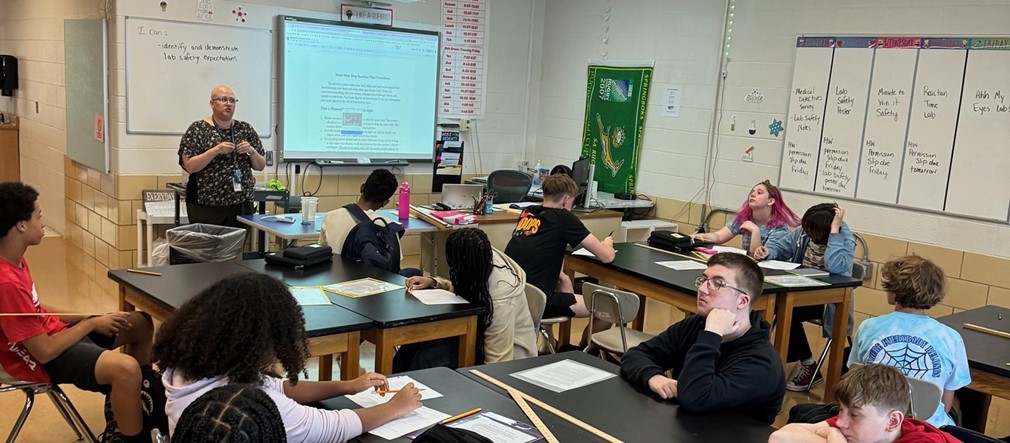The Function of Moms And Dads and Teachers in the Effort to Save Temecula Schools
The Function of Moms And Dads and Teachers in the Effort to Save Temecula Schools
Blog Article
Understanding the Value of Institutions in Youngster Advancement and Area Development
Schools serve as pivotal establishments for kid development and area growth, supplying atmospheres where academic achievements are enhanced by the growing of social skills and direct exposure to varied viewpoints. These instructional settings not just advertise essential reasoning and reliable interaction however likewise foster empathy with joint projects. Institutions' interaction with neighborhood areas through service-learning efforts strengthens the bond between families and academic institutions. This symbiotic partnership emphasizes the importance of colleges in supporting energetic citizenship and long-lasting discovering routines. Nevertheless, what are the particular devices whereby these organizations accomplish such profound influences?
Academic Achievement
Academic achievement offers as a keystone of youngster development, giving the foundation upon which future knowing and success are constructed. Colleges play a pivotal role in promoting this scholastic development, providing structured environments where kids can get essential knowledge and cognitive abilities. Standard educational program guarantee that pupils gain effectiveness in core topics such as maths, scientific research, and language arts, which are crucial for both college and professional chances.
In enhancement to passing on basic scholastic abilities, colleges also cultivate essential thinking, analytical abilities, and intellectual curiosity. These cognitive competencies are vital for navigating complex real-world scenarios and adjusting to the ever-evolving demands of the modern-day workplace. Teachers, as facilitators of learning, use varied instructional methods to accommodate varied knowing styles, thereby optimizing private pupil potential.
Additionally, academic success is closely linked to self-worth and motivation. Kids who experience scholastic success are more probable to develop a favorable self-concept and a lifelong passion for discovering. Colleges additionally offer numerous sources, such as libraries and modern technology, which additionally improve the academic experience and prepare pupils for a technically innovative culture.
Social Ability Advancement
Beyond academic success, the function of schools in social ability development is indispensable. Schools work as a primary place for children to learn and exercise necessary social abilities such as interaction, cooperation, and conflict resolution. In the structured atmosphere of a class, trainees connect with peers, educators, and other school staff, providing numerous possibilities to establish these important capabilities.
Efficient social skill growth in schools is facilitated through group tasks, collective projects, and extracurricular programs. These interactions help trainees understand social norms, build empathy, and cultivate a sense of community. As an example, group tasks show pupils how to work with each other towards a typical goal, pay attention to different point of views, and browse disputes constructively.

The cultivation of social skills throughout institution years lays a structure for future personal and professional relationships. Save Temecula Schools. As students grow, the ability to efficiently collaborate and connect comes to be increasingly crucial, emphasizing the school's vital role in all natural kid advancement
Direct Exposure to Variety
Direct exposure to variety in schools is essential to promoting a comprehensive way of thinking and broadening pupils' viewpoints. Schools act as a microcosm of the wider see page culture, and running into varied cultures, languages, and socioeconomic backgrounds within this atmosphere gears up pupils with necessary abilities for navigating a progressively globalized globe. This exposure Website motivates compassion, lowers bias, and promotes mutual regard amongst peers.
Study indicates that students that engage with peers from different backgrounds display far better analytic abilities and creativity. This understanding of diversity prepares pupils for future work environments that worth multicultural capability - Save Temecula Schools.

Neighborhood Involvement
The benefits of diverse classrooms prolong past the college walls, fostering a solid feeling of community engagement among trainees. By connecting with peers from numerous cultural, socioeconomic, and ethnic backgrounds, students obtain a wider perspective and an admiration for diversity. This direct exposure motivates them to come to be energetic people that agree to add favorably to their areas.
Institutions that stress neighborhood interaction commonly include service-learning tasks, which permit pupils to resolve real-world troubles while using scholastic skills. These jobs not just enhance pupils' understanding of their coursework yet likewise impart a feeling of obligation and empathy. Collaborations in between colleges and neighborhood companies offer pupils with chances to take part in community occasions, additionally solidifying their role browse this site as aggressive neighborhood members - Save Temecula Schools.
Additionally, adult and neighborhood participation in colleges enhances the bond in between academic institutions and the neighborhoods they offer. Via these initiatives, schools play a crucial duty in nurturing neighborhood involvement and fostering social growth.
Lifelong Knowing Habits
Creating lifelong learning routines is essential for a youngster's constant growth and versatility in an ever-changing world. Schools play a critical role in instilling these routines by creating a setting that cultivates inquisitiveness, crucial reasoning, and a love for expertise. Via extracurricular activities and varied curricula, instructors urge pupils to check out numerous topics, analyze information critically, and use their discovering to real-world scenarios.

In addition, colleges provide a structured environment where youngsters can create self-control and time monitoring skills, both of which are essential for continual discovering. By highlighting the relevance of setting objectives, assessing development, and adjusting strategies, universities prepare students to navigate the complexities of grown-up life, ensuring they remain long-lasting students and factors to society.
Final Thought
In verdict, institutions are vital in cultivating kid development and neighborhood development by providing settings conducive to scholastic accomplishment, social skill development, and exposure to diversity. Eventually, schools grow lifelong discovering habits, gearing up individuals with the necessary expertise and skills to add favorably to society.
In the organized atmosphere of a class, pupils connect with peers, instructors, and various other school personnel, providing various possibilities to establish these vital capabilities.
In significance, exposure to diversity within colleges not only enriches individual pupils but likewise reinforces the social textile of the neighborhood as a whole.
The benefits of diverse class extend beyond the institution wall surfaces, cultivating a strong feeling of community interaction amongst pupils.Schools that highlight community engagement commonly include service-learning projects, which enable trainees to deal with real-world problems while applying academic skills. Partnerships between institutions and regional organizations offer trainees with chances to get involved in area occasions, further strengthening their duty as aggressive area participants.
Report this page